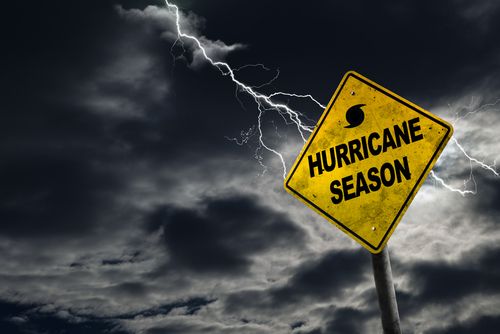
Tropical Storm Rafael is gathering strength over the Caribbean, with projections indicating a potential landfall as a hurricane along the Gulf Coast. Another storm is not what the Gulf Coast needs right now. Florida is just starting to pick up.
Tropical Storm Rafael: An Overview
Tropical Storm Rafael formed on November 4, 2024, over the warm waters of the Caribbean Sea. The National Hurricane Center (NHC) is tracking the system’s progression towards the Gulf of Mexico. With an 80% chance of developing into a tropical depression, it could become named Rafael if it reaches tropical storm status, following predictions from meteorologists. This system marks an unusual occurrence for November, as most hurricanes typically develop in peak season months.
Currently, advisories are already in place for parts of the Caribbean including the Florida Keys, Jamaica, and the Cayman Islands. Heavy rains and potential flooding are predicted to affect these regions as the storm moves northward. Its path remains uncertain as it approaches the southern coastline of Louisiana.
Ah yes… morning low temps near what our average high temps should be for this time of year. My favorite. 🫠
🌡️🔥 We remain entrenched in a hot, tropical air mass keeping our average temperatures nearly 20 degrees above average. pic.twitter.com/3EKMICrrl6
— NWS New Orleans (@NWSNewOrleans) November 5, 2024
The Potential Impact of Storm Rafael
The unique pattern of Rafael’s development this late in the hurricane season raises serious concerns along the Gulf Coast. Predictions indicate that the storm may strengthen into a hurricane by the time it reaches Cuba, potentially reaching Category 1 or 2 status.
If Rafael maintains its path, it could bring heavy rain and strong winds to New Orleans and parts of Florida by the weekend.
Those in the storm’s projected path, including residents of Louisiana and New Orleans, should remain vigilant as the system gathers strength. Meteorologist Payton Malone advises keeping an eye on evolving conditions while preparing for potential disruptions from rain and gusty winds over the weekend.
Tropical Storm Rafael to strengthen into hurricane before moving into Gulf of Mexico https://t.co/BEQ200ooKb pic.twitter.com/ANAZpoH42M
— WGNO-TV (ABC) New Orleans (@WGNOtv) November 4, 2024
A Rare November Hurricane Threat
Historically, hurricanes in November are rare compared to those occurring during September, the peak of hurricane season. The existence of seven times more storms during that month highlights the rarity of this event. As Rafael continues toward the Gulf, experts like Alex DesRosiers emphasize the significance of predicting and preparing for such a late-season event.
Before reaching the U.S., Rafael is expected to cross Cuba, potentially making landfall as a Category 1 or 2 hurricane. The uncertain trajectory of Rafael as it traverses the Caribbean waters demands attention from authorities and residents alike, who are urged to monitor updates closely.












